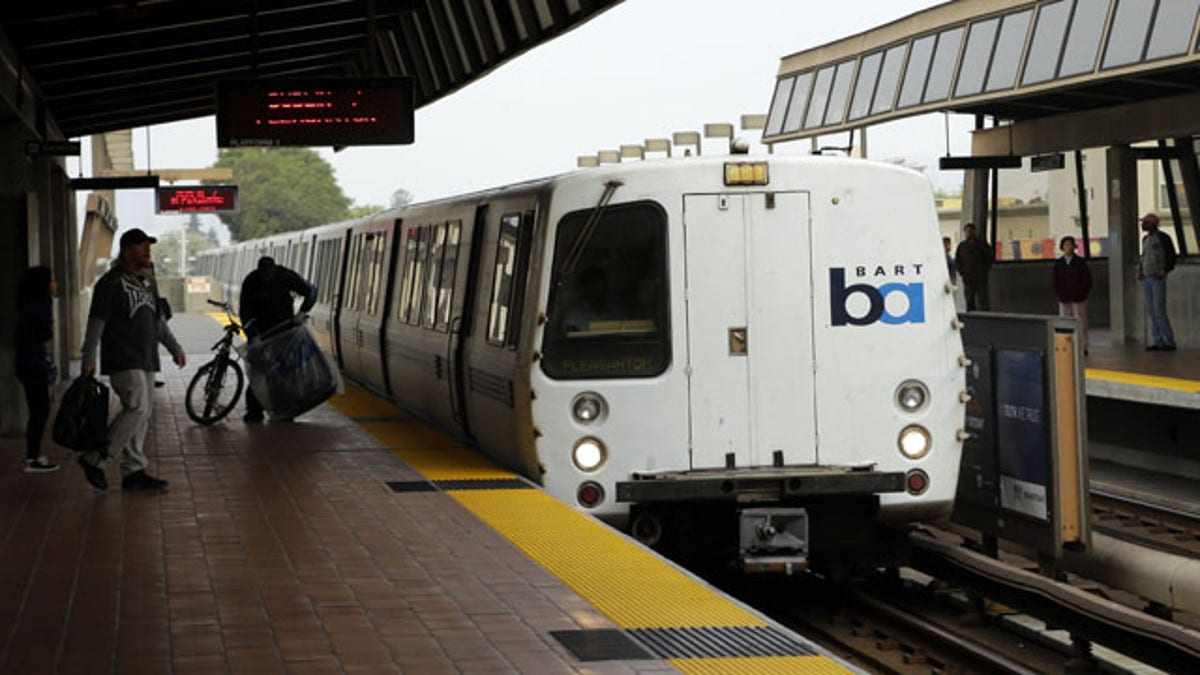
October 12, 2013: Bay Area Rapid Transit travelers wait to board an arriving train in Oakland, Calif. (AP Photo)
With a midnight strike deadline approaching, the Bay Area Rapid Transit's two largest unions announced they won't walk off the job late Sunday to allow one more day of contract negotiations.
"We are not going to go on strike because the public deserves to have a riding system that works. We will give the (transit agency) one more day to get it together," said Antonette Bryant, leader of Amalgamated Transit Union Local 1555, one of the two unions in talks with BART.
BART officials said they presented the last best offer Sunday afternoon, and that the unions have two weeks to consider it before it's taken off the table.
The unions said workers will walk off the job at midnight Monday if an offer isn't reached by then.
BART workers went on strike for nearly five days in July and were set to do so again Friday when a cooling-off period ordered by Gov. Jerry Brown ended, but they agreed to negotiate through the weekend.
Nearly 370,000 riders take BART every weekday, and its 104 miles of track make it the nation's fifth-largest commuter rail system.
In a sign of how seriously another shutdown is looming over the region, state lawmakers from the Bay Area and Lt. Gov. Gavin Newsom dropped by the talks Sunday to encourage the two sides to reach a resolution.
Newsom told reporters he believes a deal is close and can happen Sunday night.
"It would be preposterous for both sides at this stage when you're getting this close to put, at risk, your reputation and the economy of the entire region," he said.
BART and union representatives said in the late afternoon that they were still hopeful a strike could be averted.
Sticking points in the 6-month-old negotiations include salaries and workers' contributions to their health and pension plans. BART workers currently pay $92 a month for health care and contribute nothing toward their pensions -- generous benefits BART management is seeking to curtail.
The unions, which represent 2,375 mechanics, custodians, station agents, train operators and clerical workers, want a raise of nearly 12 percent over three years, while BART has proposed a 10 percent increase over four years. Workers from the two unions now average about $71,000 in base salary and $11,000 in overtime annually, BART said.
Labor leaders also are pressing demands to make stations safer, such as better lighting in tunnels, bulletproof glass in agents' booths and improved restroom access.
BART spokeswoman Alicia Trost said the negotiating teams met separately and face-to-face Sunday while reviewing and fine-tuning their respective proposals.
No details on the latest offers or the pace of progress were released, however, at the mediator's request.
If a strike is called for Monday, BART is planning to offer free bus trips between San Francisco and the East Bay, and ferry service to the city would be expanded. But people who travel on the system's north-to-south routes in the East Bay would be stranded, and freeway traffic is expected become snarled as more commuters opt to take cars.

